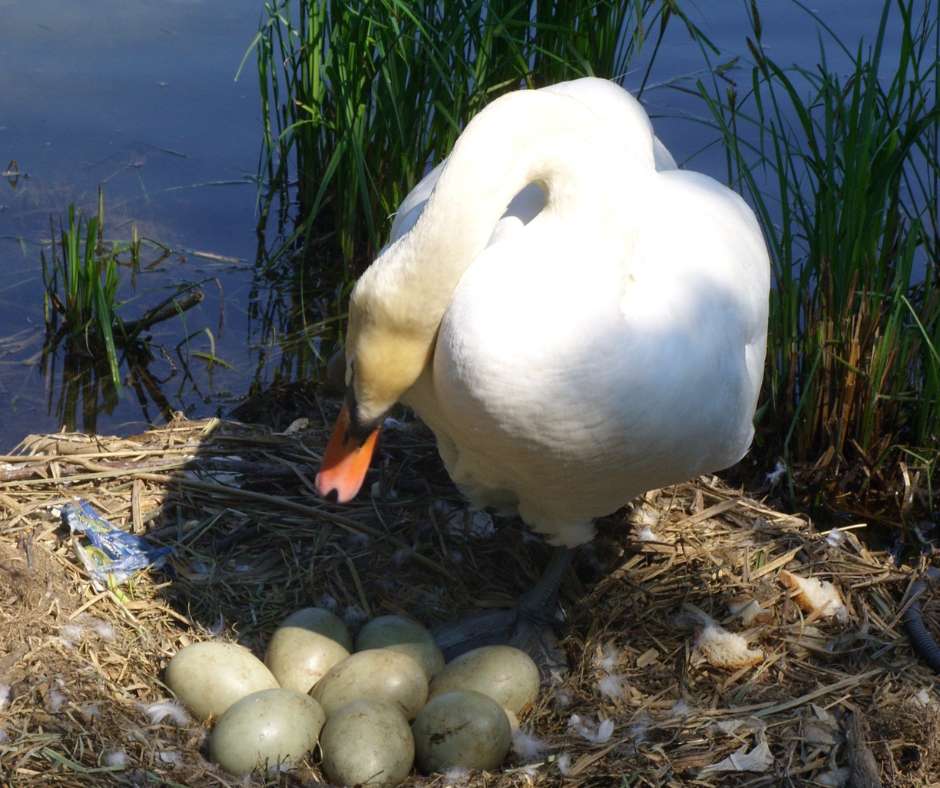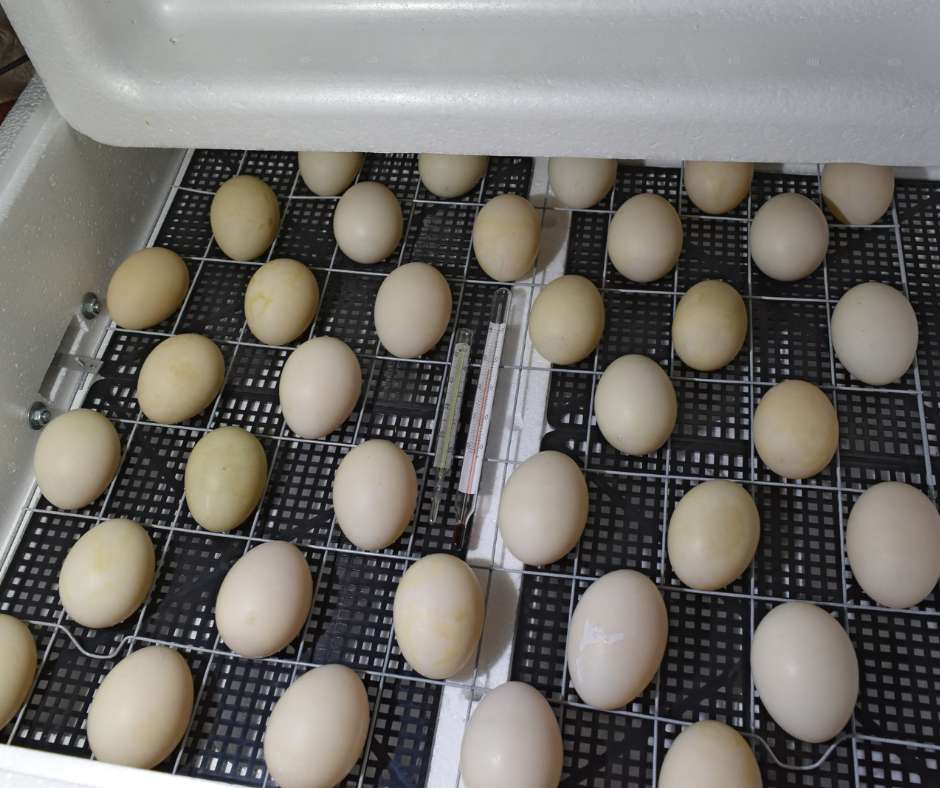Have you ever wondered, why do ducks kick eggs out of a nest? This peculiar behavior might puzzle many, but it holds a deeper purpose in the world of ducks. Often seen as nurturing and protective, mother ducks sometimes act contrary to these instincts.
This blog will delve into the reasons behind this surprising behavior. Join us as we unravel why ducks periodically remove their eggs from the nest, revealing the hidden wisdom of these feathered creatures.
Why Do Ducks Break Their Own Eggs?
Have you ever wondered why a mother duck might break her own eggs? It’s a strange idea, but it makes sense in the wild. Like many birds, ducks are very smart about caring for their nests. They can tell when an egg isn’t going to hatch or if it’s starting to rot.
Ducks kick eggs out of their nest to manage space, remove non-viable or rotten eggs, and reduce predation risk. This behavior ensures healthier conditions for the remaining viable eggs.
A bad egg can be a big problem. It can smell bad and attract animals wanting to eat the eggs or harm the ducklings. So, the mother duck might break this egg to keep the rest of her nest safe. It’s a hard choice, but ducks are all about protecting their family.
This behavior shows how much ducks do to ensure their babies have the best chance to grow up. So, next time you see a duck with her eggs, remember there’s a lot of smart thinking going on in that nest!

7 Reasons Why Do Ducks Kick Eggs Out of a Nest
Ducks are usually great mothers, caring deeply for their eggs. But sometimes, they do something that might surprise us – they kick eggs out of their nest. This isn’t because they are being mean; it’s actually their way of being good moms in tricky situations. Here are some reasons why ducks might do this:
Overcrowding in the Nest
Picture a small nest brimming with eggs. As much as a duck mom wants to keep all her eggs, sometimes there isn’t enough room. Ducks often lay more eggs than the nest can comfortably hold. When this happens, the mother may kick out some eggs to ensure enough space and resources for the remaining eggs to develop healthily.
Identification of Infertile Eggs
Not all eggs are destined to become ducklings. Sometimes, an egg might be infertile or stop developing. Mother ducks have a knack for identifying these eggs. They remove these non-viable eggs from the nest, focusing their energy on the eggs that have the best chance of hatching.
Presence of Rotten Eggs
An egg that starts to rot can be a ticking time bomb in a nest. If it breaks, it could harm the other eggs. To prevent this, ducks will often remove or kick out any egg that starts to smell or show signs of rotting. It’s their way of keeping the rest of the clutch safe.
Detecting Unhealthy Eggs
Sometimes, eggs develop problems that aren’t immediately visible. A duck might sense something is wrong with an egg – maybe it’s not the right temperature, or it feels different. Ducks instinctively remove these unhealthy eggs from their nest to protect the remaining healthy ones.
Predator Avoidance Strategies
Nature can be a dangerous place for a duck’s eggs. To outsmart predators like raccoons or foxes, a mother duck may scatter her eggs, making it harder for predators to find and eat them all at once. It’s a clever trick to increase the survival odds of her ducklings.
Environmental Stress Responses
Imagine feeling stressed and having nowhere to go. That’s how a duck can think in a busy or unsafe environment. If the nesting area is too noisy or bright, or there are too many disturbances, a mother duck might kick eggs out of the nest as a stress response.
Maternal Health and Nesting Instincts
A mother duck’s health is key to her nesting success. She might not care for all her eggs if she is unwell, malnourished, or exhausted. In such cases, she may kick some eggs out of the nest to focus on the ones she can realistically nurture.
You can also read: How to Preserve Wild Bird Eggs
How to Protect Unhatched Eggs
Protecting a duck’s nest and its unhatched eggs requires a careful and respectful approach. Here are some key strategies:
Ensure a Safe Environment: Position the nest in a tranquil area, shielded from frequent disturbances and potential predators. A peaceful setting is crucial for egg development.
Limit Disturbances: Observe the nest from a distance to avoid stressing the mother duck, as too much human interaction can lead to nest abandonment.
Handling Removed Eggs: If an egg is outside the nest and you’re confident it’s still viable (warm and intact), consider gently placing it back. Use clean hands or gloves to avoid transferring scents.
Create a Natural Barrier: Construct a light barrier with twigs or leaves for camouflage, ensuring the mother duck has easy access.
Watch for Predators: Be vigilant of predators, particularly in backyard settings. Secure the area to keep common threats like cats and dogs at bay.
Consult Experts for Abandoned Eggs: If the eggs are in danger or the mother has abandoned them, seek advice from wildlife experts or use an incubator as a last resort.
Remember, natural processes are often best with minimal interference. If in doubt, consulting a wildlife expert or bird rehabilitation center can provide the best course of action for the specific situation.
Duck Nesting and Incubation Practices
Exploring Varied Nesting Behaviors Among Different Duck Species
Different duck species have different ways of handling their nests. Some might sit on their eggs more consistently, while others take regular breaks. Understanding these patterns can help you better care for them if you’re raising ducks or observing them in the wild.
Best Practices for Promoting Healthy Duck Incubation
A healthy duck is a happy duck, especially regarding incubation. Ensure your ducks have a nutritious diet, plenty of water, and a safe, comfortable nesting area. A stress-free environment is crucial for the successful hatching of duck eggs.
Read more: What Happens If Dove Eggs Don’t Hatch?

People Also Asked
How can you tell if a duck egg is non-viable or unhealthy?
A non-viable or unhealthy duck egg might feel lighter, have a strange smell, or have a different shell color. If you gently shake it, it might sound liquid inside. However, it’s best to handle eggs sparingly.
Can moving a duck’s nest cause her to kick out or abandon eggs?
Yes, moving a duck’s nest can stress the mother duck. She might kick out eggs or even abandon the nest completely. Ducks are sensitive to changes in their nesting environment.
What are the best practices for creating a safe and stress-free environment for nesting ducks?
Provide a quiet area with minimal disturbances for nesting ducks. Ensure the nest is hidden from predators and not too exposed. Offer easy access to water and food, and avoid handling the nest or eggs.
What should be done with eggs a duck has kicked out of the nest?
Usually, it’s best to leave them alone. The mother duck knows which eggs are viable. However, if you’re sure the egg is still good and safe, you can gently put it back in the nest.
Wrap Up
In learning why ducks kick eggs out of their nest, we discovered that ducks are caring and very smart. They do this to make room in their nest, keep the good eggs safe, and protect them from danger. It’s amazing how mother ducks know which eggs to keep and which to remove.
This shows us how nature works in clever ways. So, next time you see ducks with their nests, remember they’re doing their best to care for their ducklings in their special way.

